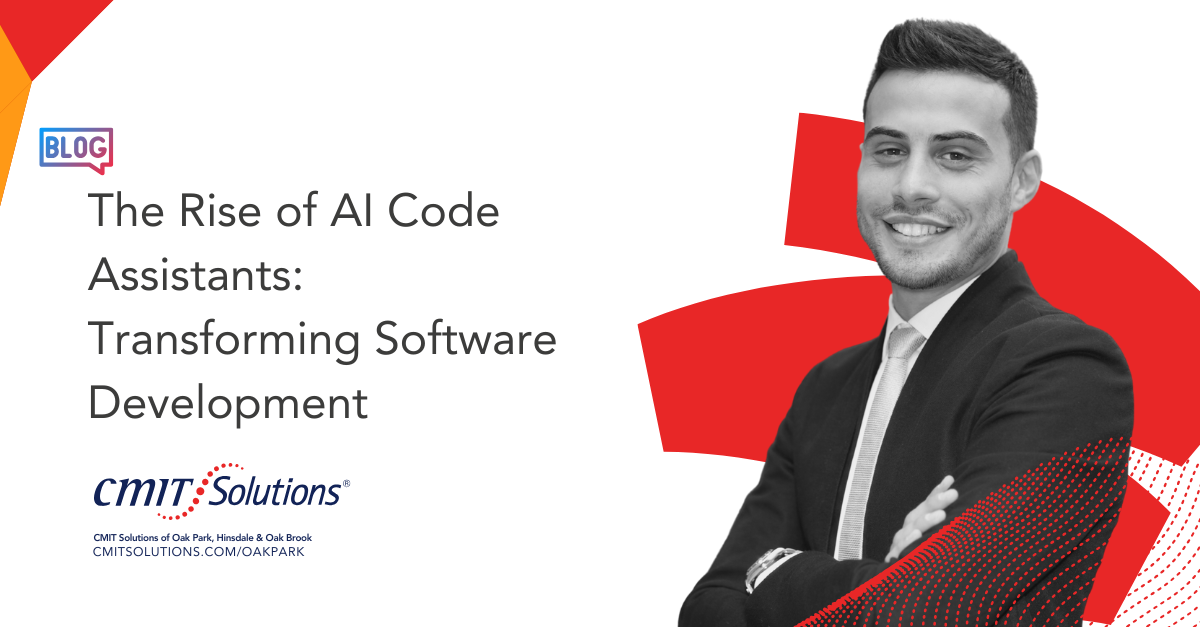The New Era of Software Development
In the dynamic world of technology, software development has always evolved at breakneck speed. But in recent years, a groundbreaking shift has emerged: the rise of Artificial Intelligence (AI) code assistants. These AI-powered tools are not only enhancing productivity but fundamentally transforming how developers write, debug, and deploy code.
At CMIT Solutions of Oak Park, Hinsdale & Oak Brook, we understand the crucial intersection between advanced technology and real-world business needs. As small and mid-sized businesses adapt to digital transformation, embracing tools like AI code assistants becomes pivotal to staying competitive and innovative.
What Are AI Code Assistants?
AI code assistants are intelligent tools designed to help developers write better code faster. Powered by machine learning and natural language processing, these assistants can:
- Auto-complete code snippets
- Suggest best practices
- Identify bugs and vulnerabilities
- Generate boilerplate code
- Refactor existing code
- Translate between programming languages
By integrating with development environments like VS Code or JetBrains IDEs, AI code assistants offer real-time support that significantly enhances developer efficiency.
Accelerating Development with Intelligent Automation
One of the greatest advantages of AI code assistants is productivity enhancement. With tools like GitHub Copilot and Amazon Code Whisperer, developers can automate routine tasks and focus more on complex problem-solving.
In fact, many small businesses have leveraged AI to reduce development cycles. This aligns with the trend we observed in boost productivity through strategic IT applications.
Transforming Debugging and Testing
Debugging can consume over 50% of a developer’s time. AI code assistants reduce this burden by analyzing patterns, flagging anomalies, and even suggesting fixes. Tools like Deep Code and Tab Nine are capable of real-time static code analysis.
Moreover, integrating AI with automated testing frameworks ensures quicker and more reliable testing cycles. This supports secure software delivery, much like the focus on email security in protecting business communications.
Enhancing Cybersecurity in Code
AI assistants aren’t just about convenience; they are critical in improving code security. Modern AI tools can scan code for known vulnerabilities, recommend secure coding patterns, and enforce compliance standards.
This level of proactive protection complements a multi-layered security strategy, as outlined in our blog on cyber defense.
Elevating DevOps with AI
The integration of AI in DevOps accelerates release cycles, enhances CI/CD pipelines, and improves collaboration. For instance, AI can predict potential failures before deployment or optimize container orchestration.
This paradigm shift is comparable to the value described in platform engineering, where infrastructure becomes code and AI fine-tunes performance.
AI-Powered Collaboration Tools
Beyond code, AI is also improving how teams collaborate. Tools integrated with GitHub or Jira can prioritize tickets, assign tasks intelligently, and summarize updates.
This reinforces the benefits we’ve seen with unified communication, empowering teams to stay in sync across departments.
Cloud-First Development with AI
As more companies shift to the cloud, AI code assistants become even more essential. They optimize deployment scripts, ensure cloud security configurations, and enhance API integrations.
This aligns with how cloud services offered by CMIT Solutions of Oak Park, Hinsdale & Oak Brook empower businesses to scale efficiently and securely.
Business Intelligence and AI Coding
When integrating business analytics tools like Power BI or Tableau, AI code assistants can automate dataset preparation, write complex queries, and suggest visualizations.
Our comparison of Power BI vs. Tableau illustrates how data-driven decisions become easier with the right tools—especially when AI supports backend development.
Compliance Made Simple with AI
With regulatory landscapes like HIPAA, GDPR, and SOC 2 evolving rapidly, AI code assistants play a critical role in maintaining compliance. They ensure proper logging, enforce data retention rules, and monitor access permissions.
Managed Services and AI Integration
AI code assistants are not standalone tools; they work best when integrated within a comprehensive managed IT strategy. By partnering with CMIT Solutions of Oak Park, Hinsdale & Oak Brook, businesses can:
- Automate code reviews
- Implement secure pipelines
- Ensure backup and recovery
- Strengthen endpoint protection
Our managed solutions, as seen in managed services, provide a solid foundation for AI-driven innovation.
AI and the Future of Work
As remote and hybrid work become standard, AI code assistants support geographically dispersed teams with real-time coding support, collaborative debugging, and intelligent version control.
This is part of a larger shift in hybrid workplace strategies, where technology bridges physical distance to foster innovation.
Beyond the Hype: AI Risks and Mitigation
AI code assistants, while powerful, are not infallible. Risks include:
- Recommending insecure code
- Lacking contextual understanding
- Reproducing biased training data
Thus, businesses must apply security tools and human oversight to mitigate risks—a theme explored in our blog on generative AI risks.
Key Use Cases Across Industries
Different industries leverage AI code assistants uniquely:
- Healthcare: Automating data validation and HIPAA-compliant code
- Finance: Enhancing fraud detection algorithms
- Retail: Personalizing eCommerce platforms
- Manufacturing: Powering real-time analytics and IoT solutions
Whether building a medical app or optimizing automotive workflows, AI’s role is expansive and essential.
Education and Upskilling for AI Integration
To adopt AI code assistants effectively, teams need upskilling. Businesses can promote:
- AI literacy for developers
- Secure coding practices
- Use of ethical AI
This is where our IT guidance offerings shine. Check out how technology leadership from CMIT helps teams adapt faster.
Conclusion: Code Smarter, Not Harder
The rise of AI code assistants is not a trend—it’s a transformative force. For businesses that aim to innovate, compete, and scale, integrating AI into development workflows is no longer optional.
At CMIT Solutions of Oak Park, Hinsdale & Oak Brook, we’re here to help you navigate this shift. From IT procurement to compliance, security, and innovation, our end-to-end services ensure you’re ready for the AI-powered future.
Let us help you code smarter, move faster, and build better.
Need help integrating AI development tools? Contact CMIT Solutions of Oak Park, Hinsdale & Oak Brook today for a customized strategy that fits your business goals.






